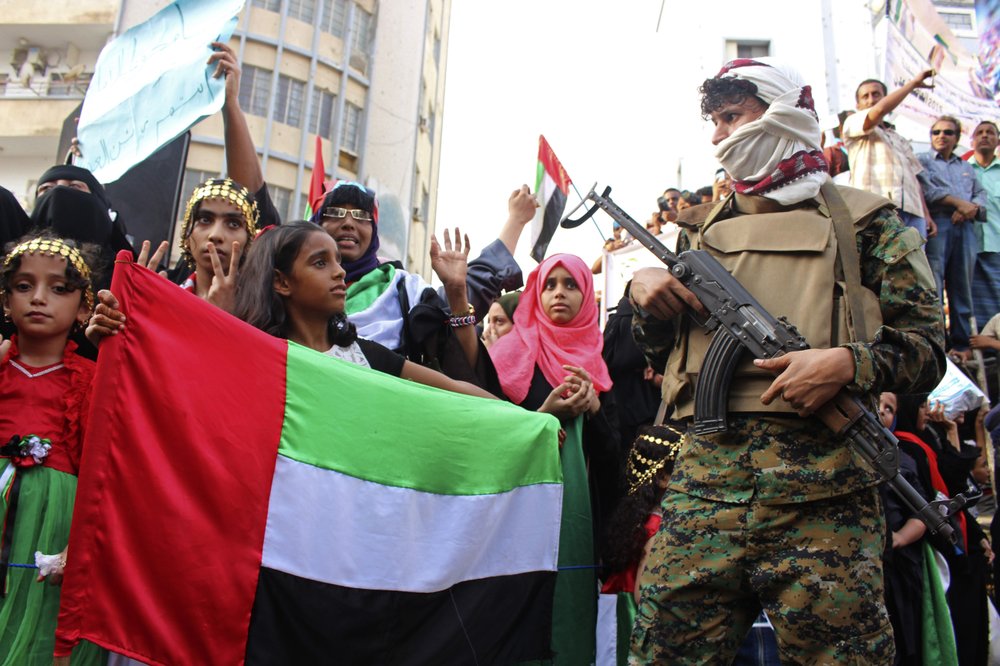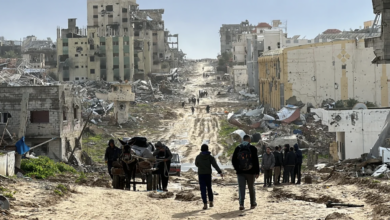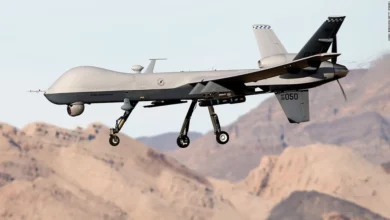Sanaa — Gulf Arab ambassadors were to meet Yemen opposition figures on Wednesday to urge them to join mediation talks as protesters around the country again demanded an end to President Ali Abdullah Saleh's 32-year rule.
The Gulf Cooperation Council (GCC) invited government and opposition representatives on Monday to talks in Saudi Arabia, at a date yet to be set, while the United States pressed the veteran political survivor to negotiate with his opponents.
Defense Secretary Robert Gates visited Saudi Arabia on Wednesday and was to discuss the unrest sweeping the region with King Abdullah, whose kingdom borders Yemen and is grappling with internal pressures of its own.
Saleh, who ignored a transition-of-power plan offered by the opposition on Saturday, accepted the GCC invitation on Tuesday and urged the opposition to follow suit. So did Ali Mohsen, the prominent general who turned against Saleh last month. There was no sign of a shift in position by Saleh despite the pressure. He has insisted for weeks he will leave once he has overseen parliamentary and presidential elections this year.
"The president will not leave his historic role early, before the transition of power…This issue is important," Saleh adviser Ahmad al-Soufi told Al-Arabiya television.
The ambassadors of Qatar, Oman and Saudi Arabia were to meet the government side on Wednesday as well as representatives of the opposition coalition, which has been non-committal so far.
"We welcome the (GCC) position on respecting the Yemeni people's choices and we will also welcome any efforts made for the sake of President Saleh's speedy departure," Joint Meeting Parties coalition spokesman Mohammed al-Sabri said on Monday.
On Tuesday, an opposition source said security forces in the southern port city of Aden detained six people for mobilizing students to join a civil disobedience campaign that has kicked off in South Yemen in recent days, with shops, schools and some government offices closed for part of the day in some towns.
Tension has risen this week in a standoff that began in February when protesters began camping out outside Sanaa University. Saleh, a wily political survivor who has been in power since 1978, said then he would run for re-election in 2013 but that did not persuade skeptical activists to go home.
On Monday, security forces and armed men in civilian clothes fired on protesters in Taiz, south of Sanaa, and the Red Sea port of Hudaida, killing 21 people.
On Tuesday, security forces and armed men again attacked a crowd of tens of thousands of protesters in Taiz, residents said, and protesters responded by hurling rocks.
Doctors told Reuters around 30 protesters were wounded by gunfire and beatings. Around 300 were injured in total, they said, most suffering from tear gas inhalation.
Saleh supporters clashed with protesters and army units protecting them in Sanaa on Tuesday, resulting in three deaths. The government said a mediation team sent to General Mohsen had been set upon, while Mohsen said it was a trap to assassinate him.
US CHANGES TACK
Washington has long seen Saleh as a pivotal ally in its fight against Al-Qaeda, which has used its Yemen base to stage attacks on Saudi Arabia and the United States. In return for billions of dollars in military aid, he has pledged to fight militants and allowed unpopular US air strikes on their camps.
But on Monday, US officials said Washington was ratcheting up pressure on Saleh to work toward a power transition plan.
On Tuesday, the Pentagon said the United States was calling for a negotiated transition in Yemen "as quickly as possible."
"Obviously the situation right now is a difficult one. The longer it festers, the more difficult it becomes," Pentagon Press Secretary Geoff Morrell said.
Some diplomats in Saudi Arabia have suggested Riyadh wants Mohsen to replace Saleh, though the general has said he is not interested in taking power. Civil society opposition groups say Mohsen, 70, an Islamist, is tainted by his kinship and long-time association with the veteran ruler.
More than 100 people have been killed since anti-government protests began in Yemen, including the 18 March killings of 52 anti-government protesters by rooftop snipers in Sanaa.
That incident, which led Saleh to declare a state of emergency, prompted top Yemeni generals, ambassadors and some tribes to back the protesters, in a major blow to the president.
Opposition sources say talks stalled because Saleh was maneuvering to ensure he and his family do not face prosecution over corruption accusations raised by the opposition. Many demonstrators are skeptical about the GCC talks.
Frustration with Saleh's intransigence may push Yemenis, many of them heavily armed and no strangers to wars and insurgencies, closer to a violent power struggle.




